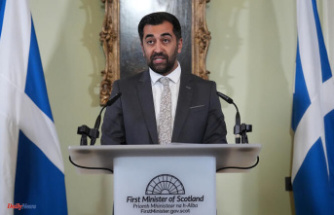The Enhancing Oncology Model (EOM), the OCM's successor will be available next year, starting on July 1 and running for five years.
The EOM, like the OCM will align payment incentives and care quality. It will focus on value-based, patient centered care for patients undergoing chemotherapy. This is based on six-month episodes of care. The EOM will be focused on health equity and will include oncology practitioners that treat Medicare beneficiaries who receive chemotherapy for seven types cancers: breast cancer (chronic leukemia), lung cancer, lymphoma and prostate cancer.
The OCM lessons will be used to create the new model. It will incorporate successful elements such as care planning and patient navigation. However, it will also introduce new elements like electronic Patient-Reported Outcomes (ePROM) and activities that promote equity and health.
Chiquita Brooks LaSure, Administrator of CMS, stated that the EOM will "incentivize participation oncology practices, including those in rural or underserved areas, to improve the provision high quality, coordinated care that addresses patient social needs and improves caregiver support."
Brooks-LaSure stated that the goal is to eliminate "stark inequalities in the ability people with cancer across race and gender, region, income, and location to access cancer screening, diagnosis, treatment, and support." CMS will help Medicare patients with cancer navigate the often difficult and overwhelming path to achieving President Biden's Cancer Moonshot goals.
The American Society of Clinical Oncology, the Association of Community Cancer Centers and the Community Oncology Alliance all supported the new model, and praised the fact it was voluntary. However, they also expressed concerns.
For example, the COA noted that the CMS Innovation Centre plans to reduce the Monthly Enhanced Oncology Services Payments in the EOM by more then half ($70 vs $160), but expects more work from practitioners.
COA is supportive of screening for electronic patient-reported outcomes and health-related social need screening. However, Ted Okon, COA's executive director, stated in a statement that it was unfair to charge practices more work and pay less, especially as practices deal with the return of the Medicare Sequester Cut, inflation, and ongoing COVID-19 challenge challenges.
COA expressed concern about the 1 year gap between the OCM's end and the beginning of EOM.
Okon stated that practices would have to make substantial investments and implement operational changes to benefit patients.
ASCO shared the concerns of COA, and ACCC expressed concern about some structural elements.
Two risk arrangements are included in the EOM, each with different levels of downside risk. The ACCC stated that requiring participants to accept downside risks from the beginning of the model "will prove to be a significant barrier for enrollment, given the current reimbursement landscape." This risk may not be financially viable for smaller programs in oncology, especially those that care for patients who are underserved or those who have never been part of OCM.
CMS should instead "encourage CMS to provide as much information as possible on proposed payment methods, cost data and benchmark amounts so that practices can make informed choices around participation," wrote the ACCC.
OCM was the largest alternative payment system to value-based payments for cancer care. The program was voluntary for 6 years and included more than 3200 oncologists as well as 201 physician practices.
However, since the program's implementation, studies on the program's success have produced mixed results.
For example, a 2018 analysis showed that a large community practice had saved Medicare $3 million in a single year by adopting the OCM.
A 2021 study showed that community practices had lower drug costs for lung and prostate cancer, and they also had lower office-based expenses after the program was implemented. However, this difference was not statistically significant when all costs are considered.
Another analysis revealed mixed results. It reported cost reductions in all types of cancers but also found that administrative expenses offset those savings. This study concluded that the OCM resulted in a net loss of $155 million to Medicare over four years.
The CMS states that EOM's central goal is to improve patient care and support.
Participating Physician Group practices will be held accountable for the quality and total cost of healthcare for Medicare patients with certain types of cancers.
CMS will allow participants to bill for monthly Enhanced Oncology Service payment for eligible beneficiaries. For beneficiaries who are dual eligible for Medicare or Medicaid, this payment will be greater.
EOM participants will be eligible to receive a retrospective performance-based payment that is based on savings and quality. Participants will have to accept downside risk as part of the EOM model. CMS may also owe them a performance-based reimbursement.
Participants in EOM will need to carry out participant redesign activities. These include 24/7 access, patient navigation, care plan, the use of evidence-based guidance, electronic Patient Reported Outcomes (ePRO), screening for health-related social issues, quality improvement and certified electronic health record technology.
HHS Secretary Xavier Becerra stated that no one should have to fight cancer without accessing high-quality, coordinated treatment. "With the new Innovation Center model of oncology care, President Biden is delivering on his call to action to mobilize all options to combat cancer and to create a system that supports all patients, their families, and to provide care that supports them all."
EOM will receive a detailed payment method paper this summer. It will be posted on the Innovation Center's site.
Roxanne Nelson, a registered nurse, is an award-winning journalist who has contributed to Medscape and written for major news outlets.
Follow Medscape on Facebook and Twitter.












